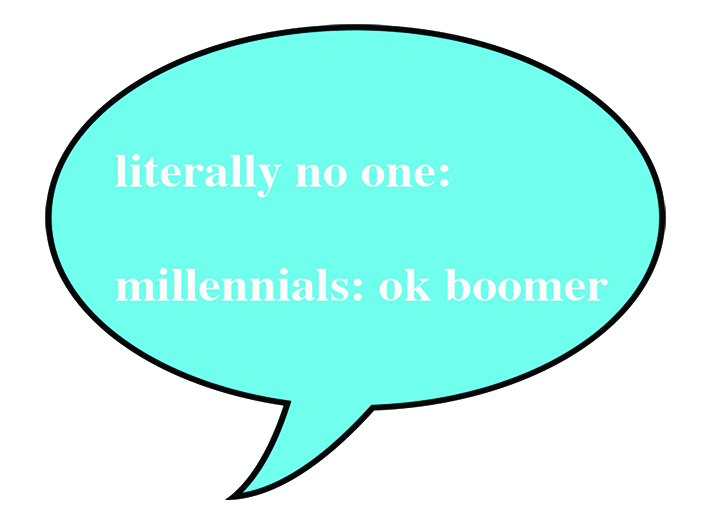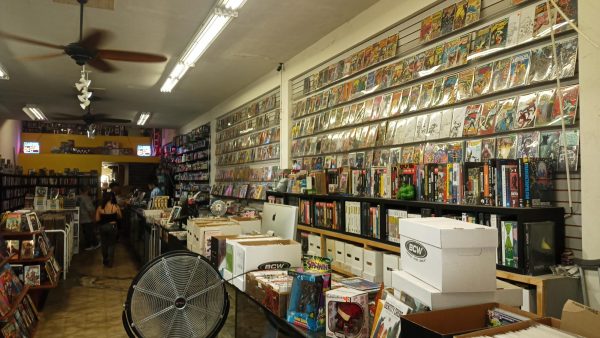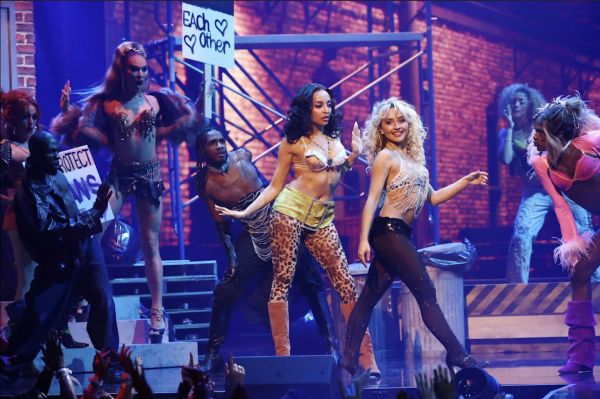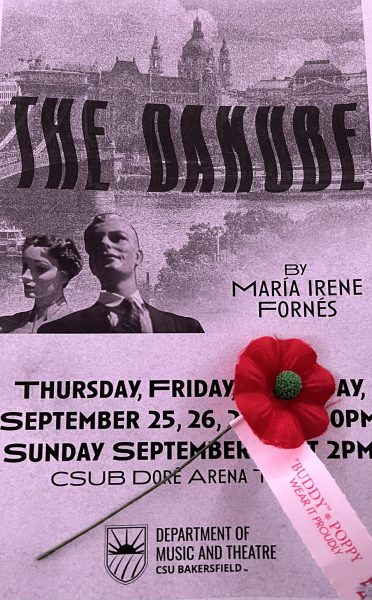OK Boomers, times are changing
December 9, 2019
“Okay boomer” is the millennial generation’s response to the constant blame thrown their way by the baby boomer generation.
There are articles upon articles blaming millennials, people born between 1981 and 1996 (ages 23 to 38 in 2019) according to the Pew Research Center, for everything from the declining diamond industry to actually killing the American Dream. Young people, in general, have drawn harsh criticism from the elder generation for being too sensitive, lazy, complaining and, as they put it, wanting a participation trophy for all.
Tired of constantly having to defend themselves from older people’s generalizations, millennials have stopped trying to explain how they are being judged unfairly and have instead opted to call out the narrow mindedness of the older generation through the use of the phrase ‘okay boomer.’
To no one’s surprise, baby boomers took offense to the retort. Radio host Bob Lonsberry, 60, even went so far as to call it the new n-word.
“Boomer’ is the n-word of ageism. Being hip and flip does not make bigotry ok, nor is a derisive epithet acceptable because it is new,” Lonsberry wrote in a now deleted tweet.
While I completely disagree that the term ‘okay boomer’ is the new n-word, I do think there is a right and wrong way to use it.
In the second part of his tweet, Lonsberry basically says that just because something is cool doesn’t mean that people should use it to shut down the conversation, That I agree with. My understanding of the phrase when it first gained popularity was that it was a way to express the exhaustion and frustration of young people when the older generation refused to accept that times were changing.
“It’s a jab from the young to the old, a collective eye-roll at the out-of-touch judgments baby boomers pass on the tastes, values and lived experiences of millennials and Gen Zers,” Holly Scott wrote about the phrase in her article, “The problem with ‘okay boomer’.”
Unfortunately, the meaning of the phrase is evolving, and not for the better. This change can be credited to the misuse of the phrase. It wasn’t long after ‘okay boomer’ became popular that it started being used as a way to shut down debates between groups from different generations. This is problematic because all it does is stop the exchange of information on issues when the different generation groups find themselves on opposite sides of the spectrum.
“I’m just worried that this whole ‘okay boomer’ thing is an easy dismissal, and it’ll prevent people from actually engaging in a productive political conversation,” Evon Yao, a University of Michigan student, said on NPR’s podcast “Boomer: Apathy, Anger and a Viral Meme.”
Regardless of how differently we view the world, we absolutely have to talk to each other and live with each other. Especially because the baby boomer generation is either the parents or grandparents of the millennial generation.
“They’re called “echo boomers” because they are the genetic offspring and demographic echo of their parents, the baby boomers,” according to Rebecca Leung’s 2004 article “The Echo Boomers” for 60 Minutes. “…There are nearly 80 million of them, and they’re already having a huge impact on the entire segment of the economy. And as the population ages, they will become the next dominant generation of Americans.”
As things stand right now, our lawmakers and other people in power are all still mostly older people who are considered baby boomers. Millennials and Gen Zers have to find a way to talk to the people in power, and ‘okay boomer’ won’t get you very far if you wish to see some change.
Young people should be wary of using ‘okay boomer’ as a means to excuse their own lack of knowledge. All that does is make you seem ignorant and uneducated, which feeds into the ideas and generalizations the older generation has toward young people.






